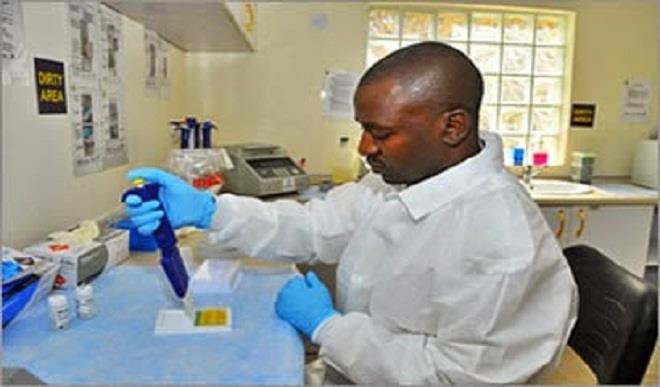The Association of Medical Laboratory Scientists of Nigeria (AMLSN) has called on the federal government to implement the provisions of the National Medical Laboratory Services Policy 2007.
President of the association, Bassey Enya, made the call in Abuja during the 55th annual scientific conference and workshop of the association.
He said provisions of the policy have not been implemented till date, despite several reviews of the policy over years.
Bassey said the major challenge to disease outbreak response is that the laboratory system in the country was not properly coordinated.
He noted the absence of a medical laboratory science department in the Federal Ministry of Health to coordinate the response.
He said, “The Federal Ministry of Health should structure laboratory services in the country, as is done in other countries to enable the country respond appropriately and at any point in time to disease outbreaks.
“The laboratory plays a critical role in disease outbreak response. we need the structure, environment and the enablement to drive the process.”
Vice President Yemi Osinbajo, who was represented by the Minister of Health, Dr Osagie Ehanire, said Global Health Security Agenda (GHSA) arose from a response to the risk humanity was now facing from the emergence and reemergence of highly infectious diseases that pose great risk to public health globally .
“With the world becoming a global village and increased human movement across countries, the risk of infectious diseases spreading has increased tremendously. Global Health Security Agenda raises to the core the need for sustainable laboratory systems.”
He said Nigeria has been confronted with various diseases outbreaks such as the Ebola Virus Disease in 2014, cerebro-spinal meningitis, cholera, polio, monkey pox, yellow fever, and Lassa fever, among others, adding that the diseases were of public health interest and affected the socio economic structure and development of the country.
While saying that there have been significant improvement in the prevention, surveillance, detection and response to these diseases , he said the Nigeria Centre for Disease Control (NCDC) Act 2018 further provided the opportunity for institutionalized, well organized centrally coordinated approach towards addressing the issues associated with diseases of public health interest.
“While the country has made achievements in the recent past , there is still much to be done so every laboratory stakeholders has to ensure that these achievements are sustained,” he said.
Registrar of the Medical Laboratory Science Council of Nigeria (MLSCN), Sir Tosan Erhabor called on the association and other stakeholders to partner with the council in ensuring quality medical laboratory services in the country.
He announced that the management of the council has resolved to fully implement its Continuous Professional Development policy from 2020.

 Join Daily Trust WhatsApp Community For Quick Access To News and Happenings Around You.
Join Daily Trust WhatsApp Community For Quick Access To News and Happenings Around You.


